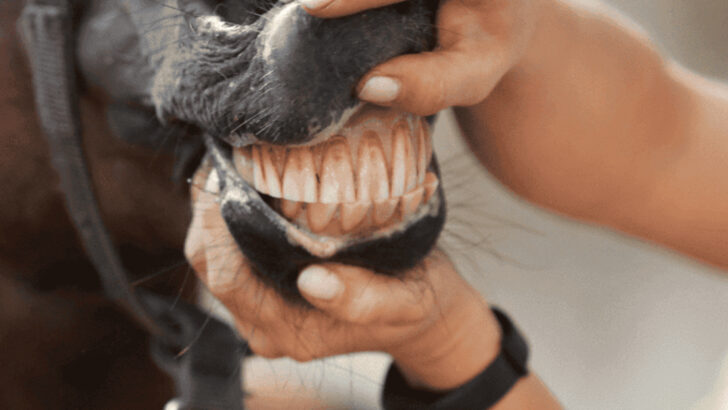Your horse’s mouth is practically a secret diary—and it’s not keeping quiet.
Cracks, hooks, strange chewing patterns… those aren’t random quirks.
They’re warnings. Whispers. Sometimes even shouts.
Because when something’s off in your horse’s body, the teeth are often the first to spill the truth.
A sharp molar might mean more than just discomfort.
It could be messing with their digestion, their posture, even their mood.
And while a hoof might get the spotlight, the jaw’s been writing the real story all along.
So before you chalk up that head toss or uneven trot to “just being stubborn,”
take a peek at what those teeth are trying to say.
Spoiler: it’s more than you think.
Uneven Tooth Wear
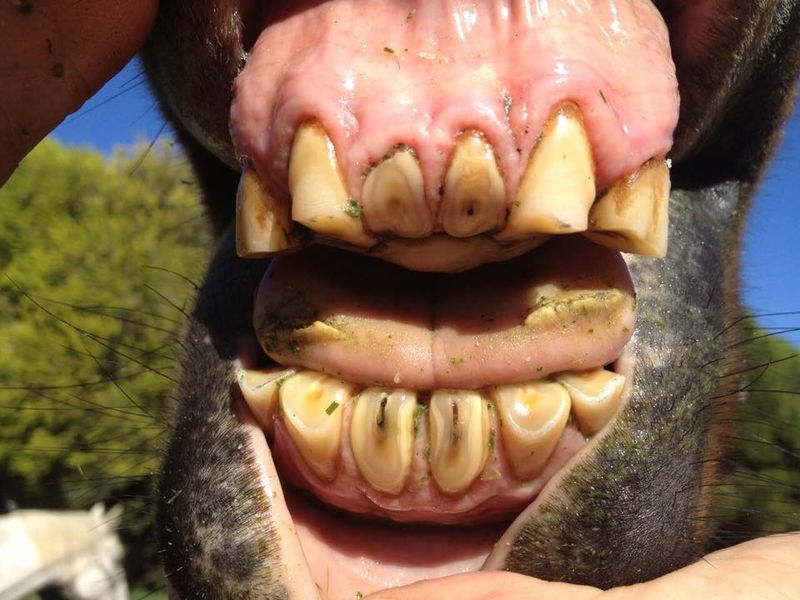
Uneven tooth wear can signify dietary imbalance or improper chewing patterns in horses. This condition may lead to digestive issues as the horse struggles to properly grind its food. Observing the teeth can reveal whether the horse is eating a balanced diet or if adjustments are needed.
Sometimes, uneven wear is indicative of underlying health issues like jaw misalignment or dental disease. Regular dental check-ups are vital for detecting and correcting these problems early.
A horse with uneven tooth wear deserves attention to prevent discomfort and ensure optimal health.
Discolored Teeth
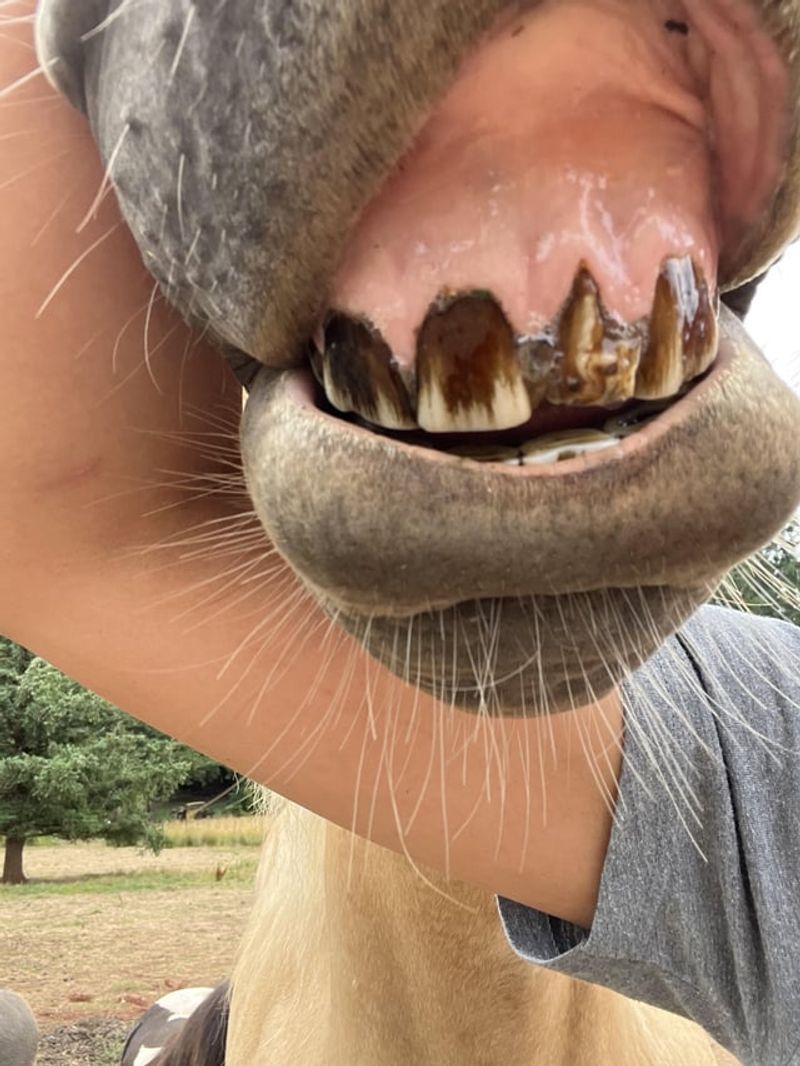
Discolored teeth in horses could hint at poor diet, excessive fluoride intake, or certain medications. Such color changes might also reflect liver or kidney issues, pointing to deeper health concerns.
The appearance of yellow or brownish stains on teeth can lead owners to examine dietary habits and possible environmental contaminants.
Routine examination helps in identifying discoloration early, allowing for timely adjustments to the horse’s lifestyle. Addressing dental discoloration can avert more severe health problems down the line.
Sharp Edges on Teeth
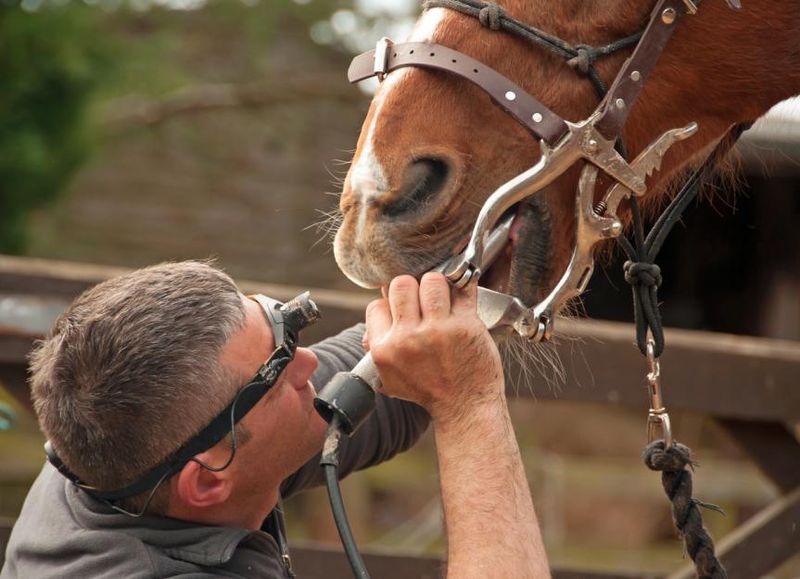
Sharp edges on a horse’s teeth can result in painful mouth ulcers, affecting eating and performance. This condition often arises from improper wear and tear, leading to discomfort during feeding.
Such sharpness may cause reluctance in eating or carrying a bit. Regular dental floating can smooth these edges, enhancing comfort.
Recognizing sharp edges early and addressing them through professional care is essential to maintaining a horse’s quality of life and preventing eating difficulties.
Missing Teeth
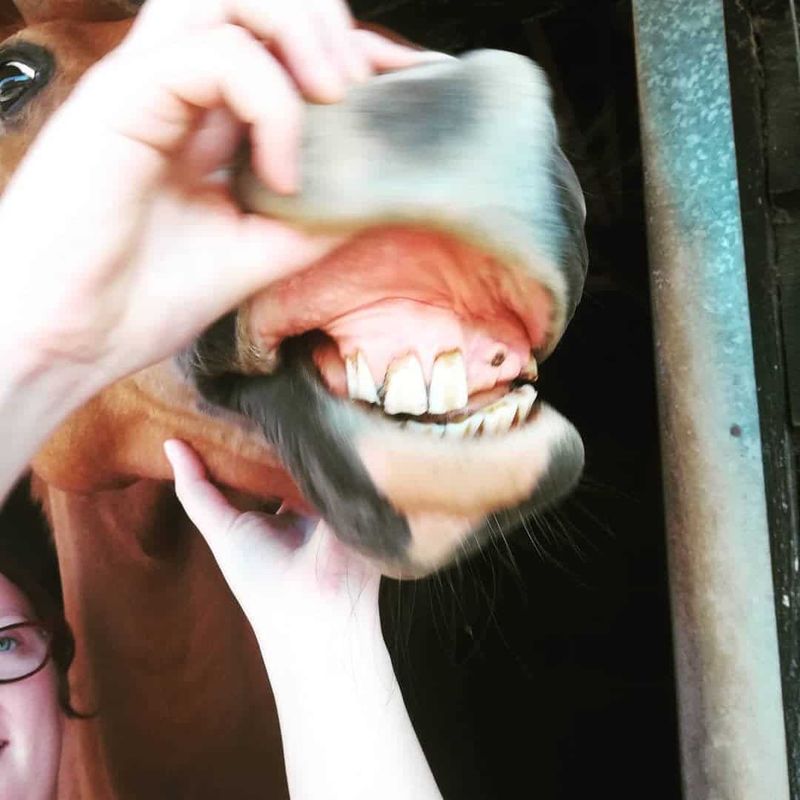
Missing teeth can pose significant challenges for a horse, including difficulty in chewing and increased risk of digestive issues. This gap may lead to improper digestion and nutrient absorption.
The absence of teeth often results from age, injury, or dental disease, each requiring different management strategies.
Owners should monitor their horse’s eating habits and consult with a veterinarian to tailor a diet that accommodates this dental change, ensuring the horse remains healthy and nourished.
Excessive Drooling
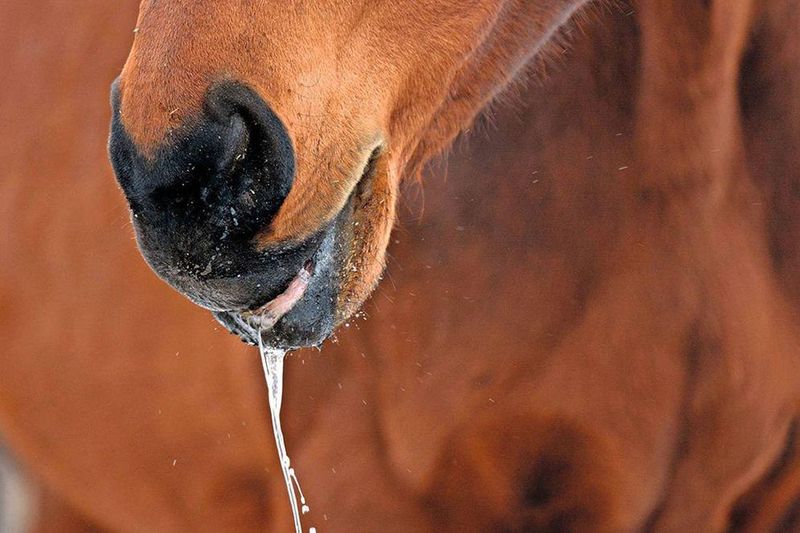
Excessive drooling in horses can be an indication of dental problems like tooth abscesses or foreign objects lodged in the mouth. This condition can also suggest oral infections or inflammation.
When a horse drools excessively, it might be experiencing pain or discomfort, necessitating immediate examination by a veterinarian.
Addressing the root cause of drooling promptly can alleviate discomfort and prevent further health complications, ensuring the horse’s comfort and well-being.
Foul Breath
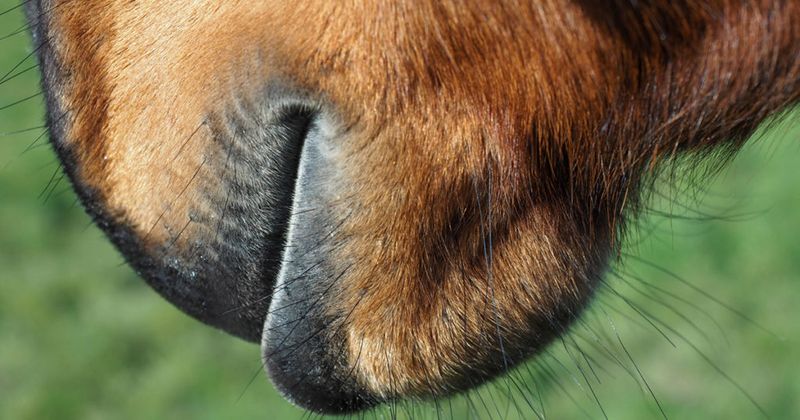
Foul breath in horses often signals dental infections, decaying food trapped in the mouth, or gum disease. This unpleasant odor can be an early warning sign of more serious oral health issues.
Bad breath necessitates a dental examination to identify and treat the underlying cause, whether it’s an infection or dental decay.
Timely identification and treatment can help prevent more severe health problems, maintaining the horse’s oral health and overall wellness.
Overgrown Teeth
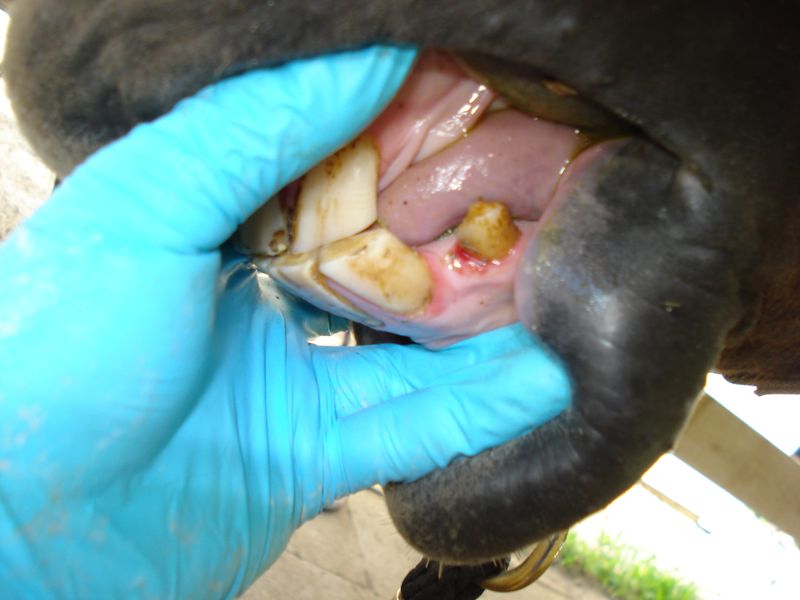
Overgrown teeth can cause significant discomfort and trouble in eating for horses. This condition, known as ‘wave mouth’ or ‘step mouth,’ can result from irregular wear patterns.
Overgrowth may lead to jaw alignment issues and increased wear on certain teeth. Regular dental check-ups and floating can manage this condition effectively.
Proper attention to overgrown teeth ensures that the horse can eat comfortably and maintain its health, preventing further complications from arising.
Swollen Gums
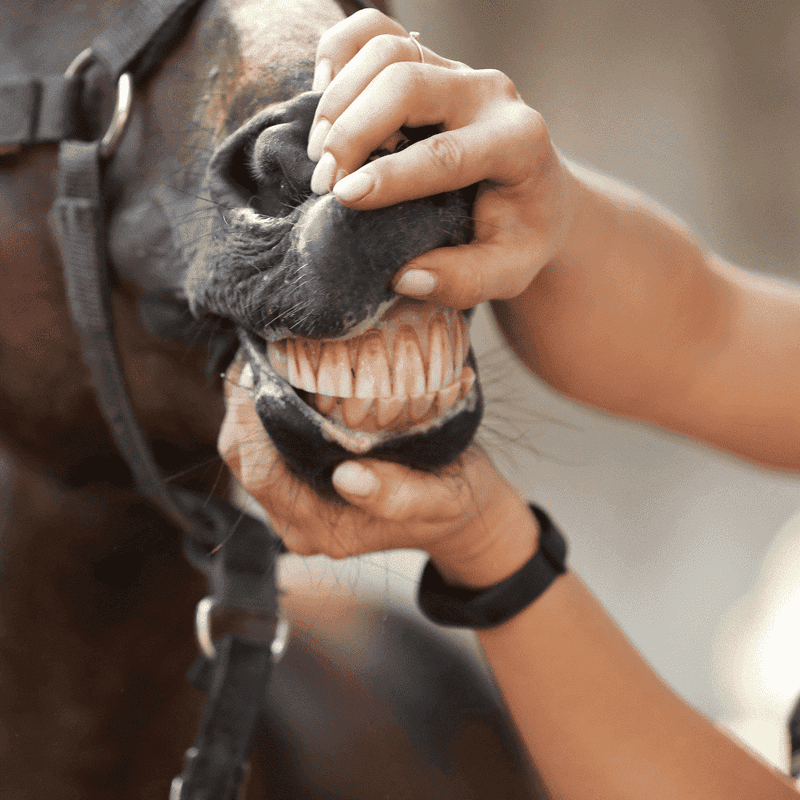
Swollen gums in horses often indicate gum disease or injury, which can lead to significant discomfort and affect eating habits. Inflammation might result from trapped food particles or dental infections.
Observing gum condition is vital for early detection and treatment, preventing more severe oral health issues.
Attending to swollen gums promptly can restore comfort and maintain the horse’s ability to eat properly, ensuring overall health and vitality.
Loose Teeth
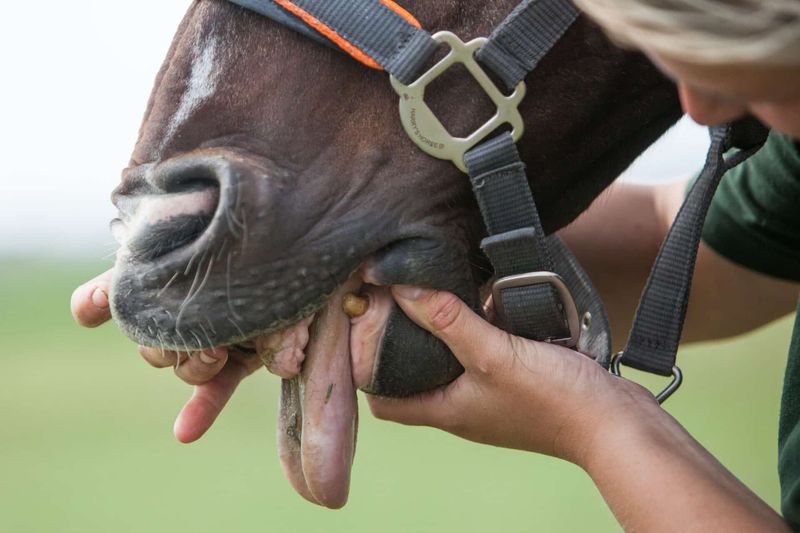
Loose teeth, especially in younger horses, can signal nutritional deficiencies or trauma. If left unaddressed, they can lead to infections or abscesses, posing risks to overall health.
Identifying loose teeth early allows for dietary adjustments and medical interventions, preventing more severe consequences.
Maintaining a balanced diet and regular dental check-ups are key to managing this issue, keeping the horse’s dental health in check and ensuring longevity and well-being.
Cracked Teeth
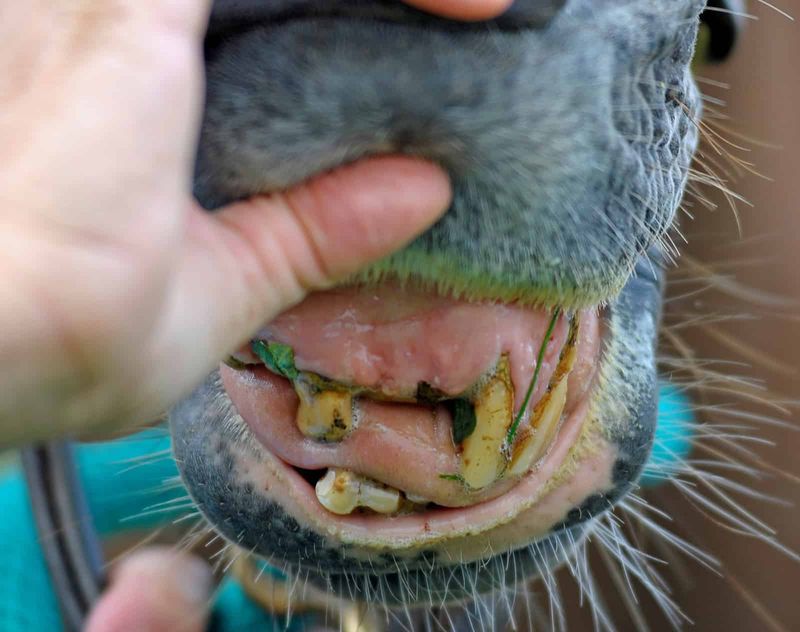
Cracked teeth in horses are often the result of trauma or biting on hard objects. These cracks can become painful and lead to infections if not treated.
A cracked tooth requires immediate veterinary attention to prevent further damage and ensure healing.
Regular monitoring and avoiding hard feed can minimize the risk of cracking, promoting a healthy dental environment for the horse. Addressing cracked teeth promptly is crucial for the horse’s comfort and dental integrity.
Teeth Grinding
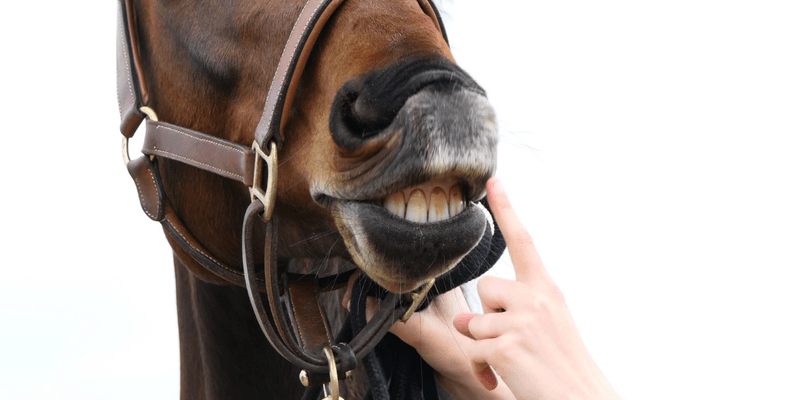
Teeth grinding can indicate stress, discomfort, or dental pain in horses. This behavior can lead to abnormal wear and dental issues if persistent.
Identifying the cause, whether it’s due to stress or oral pain, is essential for addressing this habit.
Providing a calm environment and regular dental evaluations can alleviate the reasons behind grinding, ensuring the horse’s comfort and peace of mind.
Abnormal Tooth Growth
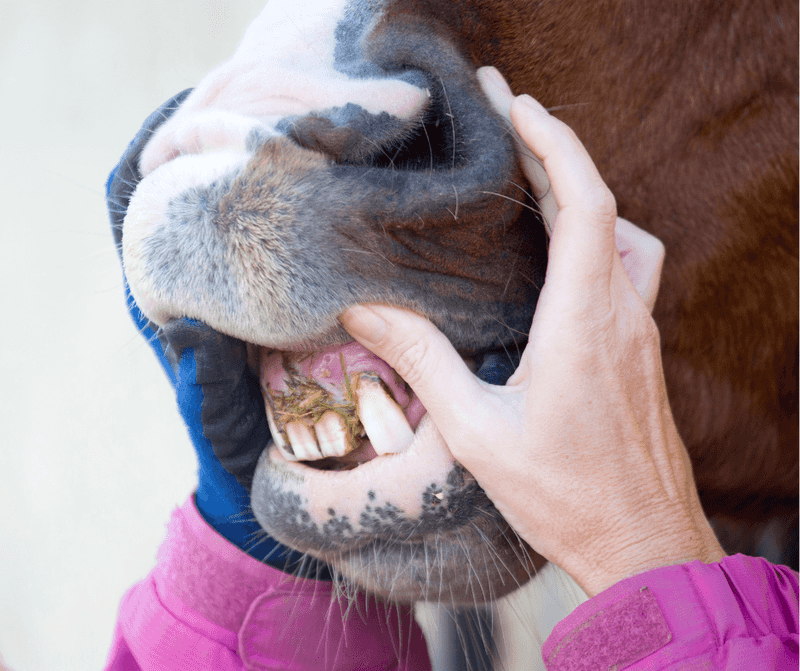
Abnormal tooth growth, such as extra or misaligned teeth, can cause difficulties in chewing and lead to sores or infections. This condition might be congenital or develop with age.
Regular dental assessments can catch these anomalies early, allowing for corrective measures.
Proper management of abnormal growth ensures efficient feeding and prevents discomfort. Keeping a close watch on dental development is key to sustaining the horse’s overall health and nutrition.

